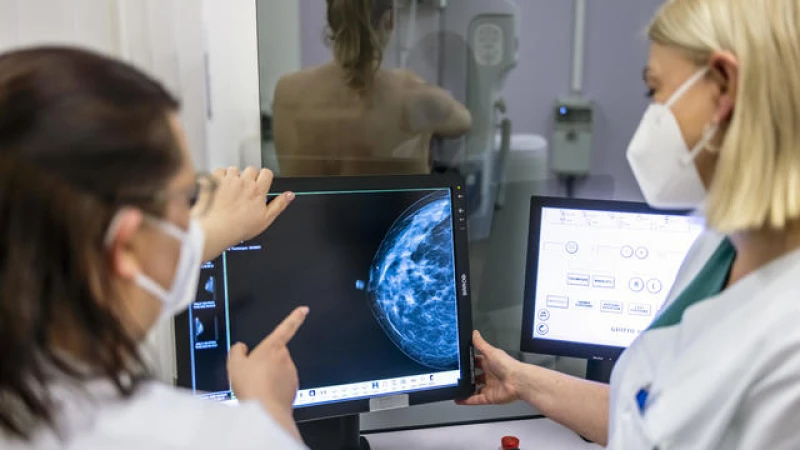Artificial intelligence is revolutionizing the healthcare industry, particularly in breast cancer screenings. Recent studies have shown that physicians assisted by AI in mammography screening detected 20% more cancers, as reported in a study earlier this year (source). Furthermore, research published in the Nature Medicine journal by Northwestern Medicine has found that AI could potentially predict outcomes in invasive breast cancer, potentially reducing unnecessary chemotherapy treatments for patients (source).
For Tehillah Harris, AI in breast cancer screenings provides an extra set of eyes, especially considering her family history. After her mother's death from breast cancer at the age of 32, Harris decided to undergo regular screenings at Mount Sinai in New York, where AI is utilized to assist in reading mammograms and breast sonograms. Dr. Laurie Margolies, the director of breast imaging at Mount Sinai, demonstrated how AI analyzes mammograms and categorizes them into three levels of risk: low, intermediate, and elevated.
AI Revolutionizes Breast Cancer Screening
Artificial Intelligence (AI) is making significant advancements in the field of breast cancer screening. AI tools are now being used to analyze mammograms and breast sonograms, providing faster and more accurate results.
In one instance, CBS News witnessed an AI tool analyzing a breast sonogram in just a few seconds. However, it is important to note that a radiologist also reviews the scans to ensure accuracy.
Dr. Margolies, a radiologist, compares the role of AI in healthcare to that of a magnifying glass. She believes that AI is here to assist doctors rather than replace them. While AI can provide opinions and analysis, it lacks the ability to be empathetic or consider personal factors such as family history.
Patients like Ms. Harris appreciate the benefits of AI tools in screening, but they also value the human touch. Ms. Harris emphasizes the importance of having a doctor explain the results and provide support when needed.
While AI is revolutionizing breast cancer screening, it is clear that human doctors will continue to play a vital role in patient care.







